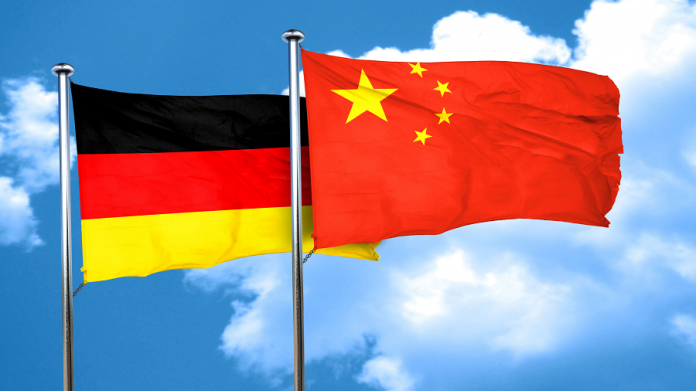
BEIJING: Germany and China on Friday signed agreements to strengthen coordination in banking, finance and capital markets, and pledged to further open market access and deepen their pragmatic cooperation to broaden economic ties.
The agreements were made at the close of a two-day visit by German Finance Minister Olaf Scholz to Beijing for talks with Vice Premier Liu He, who is President Xi Jinping’s top economic adviser.
Both sides reaffirm that “they will strengthen macroeconomic policy coordination and pragmatic cooperation in the fiscal and financial fields and expand strategic cooperation,” according to a joint statement issued at the end of their talks.
Trade between the two nations has softened amid uncertainty caused by the U.S. tariff dispute with China, but both have shown willingness to demonstrate that the world remains multilateral.
The agreement said they will make joint efforts to improve international economic governance, maintain the global multilateral system, combat trade protectionism and support the rule-based multilateral trading system with the World Trade Organization as its centre.
“It is important that, contrary to recent trends that we can observe elsewhere, we are seeing progress in our cooperation,” Scholz told reporters before the talks at the Diaoyutai State Guest House in the Chinese capital.
Market access for banks and insurance companies on a level playing field and in the context of reciprocity is important, added Scholz.
“As the world economy slows, market volatility rises, creating greater risks,” Liu told reporters.
Berlin stresses its “close and advantageous” trade ties with China, whose rise has displaced Germany from its ranking as the world’s third-biggest economy to the fourth.
At the same time, it increasingly seeks to better protect and strengthen sensitive German and European business sectors from China’s state-backed acquisitions overseas in strategic industries.
“If you work closely together, you learn to appreciate similarities, but also to know differences,” Scholz said.
“And we have a lot of common interests in financial matters, and then we need to bring different perspectives together. I believe that is the very important task of this financial dialogue,” he added.
Both sides agreed that German-Chinese cooperation benefited their economies, and they are committed to ensuring a non-discriminating, open market access environment, and to easing existing market access and investment barriers in both countries.
FINANCIAL COOPERATION
Both sides recognize the potential of cooperation in the financial sector and are open to financial firms deepening their cooperation in third countries based on commercial criteria.
China and Germany welcome German insurers to set up wholly-owned insurance holding companies in China, and welcome Chinese insurers and reinsurers to conduct reinsurance business in Germany, the statement said.
“China commits to continued granting of national treatment for foreign insurance companies and a level playing field for domestic and foreign insurance companies,” it said.
China also welcomes German banks to apply to become a primary dealer in the open market operations of the People’s Bank of China (PBOC).
The two countries will also support efforts to identify synergies between China’s Belt and Road initiative and the EU’s strategy for linking Europe and Asia, as well as European infrastructure planning.






















